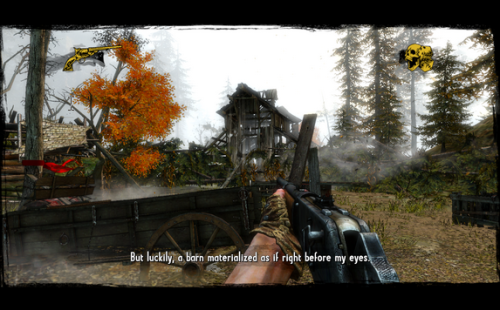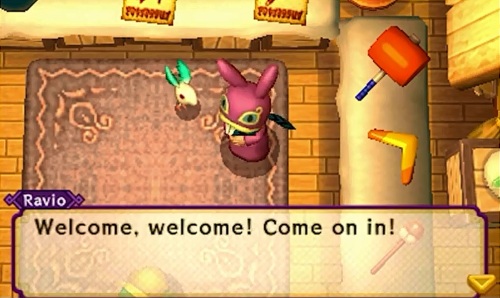Q&A Overflow: Longread Response on Crowdfunding and Developer Friendship Ethics
This post is actually a response to a question from a freelance game journalist Q&A I’m doing through my ask.fm account, but I just had so much to say on the subject that I ran out of room in the little response text box. So instead of shortchanging my answer, I decided to copy it all over here and finish it properly
The Question: Why should we, the readers, trust an industry that was content to ignore the issues of possible conflict of interest, such as patreon support and friendships with sources, until the issues went public. In short, why should we believe you can effectively police your biases. – [no name was provided]
Response:
I realize that it seems like game journalists are just suddenly talking about issues with crowdfunding like Patreon and Kickstarter, but that is not entirely the case. There have been a few public discussions on twitter about how to handle coverage of crowdfunded games, but much of the talk has taken place behind the scenes in places like the GameJournoPros group.
Within the GameJournoPros group the conversation started as the Double Fine Adventure Kickstarter (which would eventually become the game Broken Age) was making huge headlines in February 2012, and has continued to be a heated topic in the group as the discussion evolved since then. In the last few days a lot of people have eagerly and excitedly sent me links to the Greg Linsby interview video as a means to answer this question, but I think the answer it provides is incomplete for the context.
For example, would paying for a game in order to review it be considered financial support to the developer, and therefore a breach of ethics? Say, hypothetically, a publisher or PR firm actually does decide to blacklist a journalist or publication. Is that publication then ethically incapable of providing its audience with a review because in order to do so they would be providing some financial support to the developers? Is paying out of pocket for a review copy of a game less ethical than agreeing to a review embargo in order to have access to an early copy of the game? I would hope that you at home are answering “no, of course not.” How a review copy of a game is obtained is of far less importance than how that game is then reviewed.
So what does that mean for crowdfunding campaigns? What makes crowdfunding campaigns different? Is it the act of paying in advance while the game is still in development? What then about pre-ordering a game for a review if you know ahead of time you won’t be able to get a review copy from the publisher/PR firm? The pre-order money doesn’t immediately go to the developers/publisher, but is that delay in timing a significant difference? And what about Patreon, which allows developers to have an ongoing project or series of projects? Keep in mind that Patreon contributors are only charged when a creator releases something, making Patreon less about funding a project than it is about a creator making something with the confidence that they will be compensated for their work upon release. Since the payment happens only once the content is created and released, is it functionally the same as purchasing a game on the day it is released? Does the fact that a Patreon contributor is guaranteeing that they will purchase each game on its release day make it a significantly different sort of transaction?
These are questions which game journalists have been debating for over two and a half years now, and no universal consensus has been reached. Gamers only recently started questioning it, and so the discussion has become more public, but a public debate doesn’t mean that game journalists have gotten any closer to agreeing to any universal guidelines. What gamers see as ignoring the issue is more accurately a reflection of that lack of consensus.
Since there has been no universal consensus, publications have individually elected to carve out their own guidelines. This is a good thing, or at least I would think anyone worried about game journalists colluding in secret would consider it a good thing that there is healthy disagreement and debate. It is the prerogative of each publication to carve out their own journalistic guidelines. I have already laid out my own personal stance on the ethics of crowdfunding contributions in a previous ask.fm reply but since I am a freelance writer I do not have the luxury of only complying with my own personal code. Obviously I would have to comply with the policies of whichever publication I am writing about a game for, making any necessary disclosures to the editor.
Another facet of crowdfunding is writers who try to offer a crowdfunded project and have developers as contributors. This is not unethical on its own, but it is something that has the potential to be. If it were inherently unethical then any gaming magazine that has ever had a copy purchased by a game developer would be just as guilty. I can’t imagine any writer so desperate for the $1 monthly contributions that are typically given by Patreon supporters that they would curb their work to favor a contributing developer, but it’s still something to keep an eye on. If there is a slip, and preferential coverage is given to a supporter, the most productive course of action would be to approach the journalist with the assumption that it was an unconscious slip, since that is most likely the case. The journalist can then simply ask the developer to withdraw funding and the matter is solved quickly and painlessly for everyone.
Ok, whew, that was a lot to write. Now to address what I see as the second part of your question: press friendships with developers.
Again, that same Greg Linsby interview video is frequently brought up as a response to the question of journalist/developer friendships, but unlike Linsby’s answer to crowdfunding, I feel he provides a much more complete and satisfactory answer on this subject.
Linsby states that the matter of what constitutes friendship is not always so clearly black and white, and that journalists have to be constantly vigilant and self-regulating to ensure that the line is not crossed. For example, having a drink with a developer at a professional event like GDC or E3 is not, on its own, a sign of anything to be worried about. There is a crucial distinction made between being friends with a subject and being on friendly terms with a subject for professional or networking reasons.
Personally, there are a lot of developers I am friendly with. I’ll talk with them on twitter and make sure to touch based with them and say hi if we’re at the same industry events, maybe even try to hang out with them at one of the many parties or bar hangouts that take place at night during an industry event. But during these times there is always an understanding of a professional relationship.
One example is how diligent developers are to specify on and off-the-record comments when speaking with myself and other journalists at those industry events. Linsby’s way of defining friendship between press and their subjects is putting the friend’s interest before your own. While everyone behaves outwardly friendly at an industry event, the trust of friendship just isn’t fully there, with both journalists and developers always on their toes and aware of their respective roles. Anything said that isn’t explicitly off-the-record is liable to end up in an article the next day, making the conversation’s dance of what is said and not said fascinating to watch and be a part of. Obviously that is not the only measure of crossing between being friendly and friendship, but this post is already long enough so I’m not going to go through every possible circumstance.
So in short, I hope you can trust us because we are professionals and take the responsibility of our occupation seriously. You may not always see the careful precautions journalists take to ensure we are providing the best reporting possible, but if you take the time to politely ask and listen to the reply it’s possible you might find that the answers aren’t as murky as you first thought.


